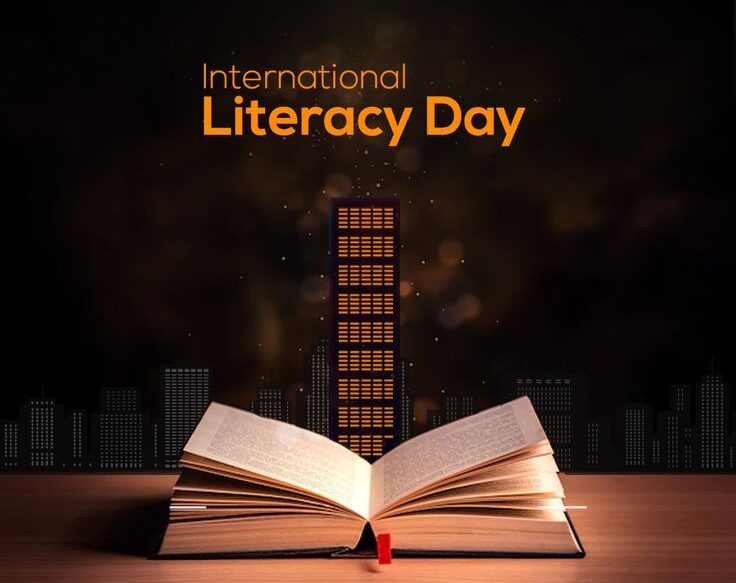8 Inspiring Facts About International Literacy Day That Show Why It Matters
Introduction
International Literacy Day, celebrated annually on September 8th, highlights the power of literacy and its vital role in empowering individuals and transforming societies. Established by UNESCO in 1966, this day aims to raise awareness about global literacy challenges and promote efforts to improve literacy rates worldwide. Literacy is more than just the ability to read and write; it is a pathway to personal and societal development, economic empowerment, and sustainable growth.
The History of International Literacy Day
The journey of International Literacy Day began at the 14th session of UNESCO’s General Conference in 1966. At that time, the world faced severe literacy challenges, with a large percentage of the population unable to access basic education. UNESCO sought to create a day dedicated to raising awareness about these issues and encouraging governments, organizations, and individuals to take collective action.
Since its first observance in 1967, International Literacy Day has grown into a global movement, drawing attention to the persistent inequalities in literacy rates and the urgent need for universal access to education.
Why Literacy Matters in Daily Life
- Empowerment and Independence
Literacy empowers individuals to make informed decisions, communicate effectively, and participate in their communities. It allows people to break the cycle of poverty and become self-reliant. - Economic Opportunities
In a world driven by knowledge and technology, literacy is key to accessing better job opportunities. A literate workforce is more productive and adaptable, contributing to economic growth. - Health and Well-being
Literacy improves access to health information and services. Individuals who can read and understand medical instructions are better equipped to manage their health and that of their families. - Gender Equality
Educating women and girls is one of the most effective ways to achieve gender equality. Literacy provides them with the tools to advocate for their rights, pursue careers, and contribute to their communities. - Sustainable Development
Literacy is a cornerstone of the United Nations’ Sustainable Development Goals (SDGs). From reducing inequality to promoting inclusive societies, literacy plays a crucial role in achieving a better future.
Interesting Facts About Literacy
- Global Challenge:
Despite progress, 773 million adults and young people worldwide still lack basic literacy skills, and 250 million children fail to acquire foundational literacy even after attending school. - Impact of COVID-19:
The pandemic exacerbated literacy challenges, with school closures disrupting education for millions of children, especially in underserved regions. - Gender Disparity:
Women account for two-thirds of the illiterate population globally, highlighting the urgent need to focus on female education. - Economic Gains:
Studies show that improving literacy rates by 20% could increase global GDP by trillions of dollars. - Digital Literacy:
In today’s digital age, literacy extends beyond traditional reading and writing to include digital skills, essential for navigating the modern world.
Observance and Activities
- Educational Campaigns:
Governments, NGOs, and communities organize workshops, seminars, and literacy drives to promote education and encourage reading habits. - Community Involvement:
Local libraries, schools, and organizations host events like book fairs, reading sessions, and storytelling to engage children and adults alike. - Global Initiatives:
UNESCO highlights literacy challenges and successes through global conferences, reports, and awards to recognize outstanding contributions. - Social Media Campaigns:
Social media platforms play a key role in spreading awareness, with hashtags like #InternationalLiteracyDay trending each year to inspire action.
Significance of International Literacy Day
International Literacy Day reminds us of the transformative power of education. Literacy is the foundation of lifelong learning and a critical driver of social and economic progress. It uplifts individuals, bridges gaps, and fosters inclusive societies.
For many, the ability to read and write is a privilege, but for millions, it remains an unfulfilled dream. This day calls for collective efforts to ensure that literacy becomes a reality for everyone, everywhere.
How to Wish on International Literacy Day
- For Teachers: “Thank you for being the guiding light for so many. Happy International Literacy Day!”
- For Friends and Family: “Let’s celebrate the gift of knowledge and share the joy of learning. Happy International Literacy Day!”
- On Social Media: “Let’s work together to make education accessible for all. #InternationalLiteracyDay #EmpowerThroughEducation”
Frequently Asked Questions (FAQs)
- What is the purpose of International Literacy Day?
The day aims to raise awareness about global literacy issues and promote efforts to improve education for all. - Why is literacy important?
Literacy empowers individuals, promotes economic growth, improves health outcomes, and fosters sustainable development. - How can I contribute to literacy efforts?
You can volunteer with local organizations, donate books or resources, support literacy programs, or mentor someone in your community. - What is the theme of International Literacy Day 2025?
Each year, UNESCO announces a specific theme to focus global attention on a particular aspect of literacy. Check the latest updates for this year’s theme.
Conclusion
International Literacy Day is more than a celebration—it’s a call to action. By recognizing the significance of literacy and its far-reaching impacts, we can work together to address global educational inequalities. Education is the key to unlocking potential and creating a world where every individual can thrive.
Let this day inspire us to value literacy as a universal right and take steps to ensure it is accessible to all. Together, we can pave the way for a brighter and more inclusive future.










